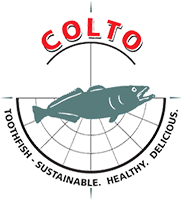References: Österblom, H., Sumaila, U.R., Toothfish crises, actor diversity and the emergence of compliance mechanisms in the Southern Ocean.Global Environ. Change (2011)
Previous research has shown how Illegal, Unregulated and Unreported fishing (IUU) has proven so resilient to international enforcement measures that it should be included in the definition of organised crime.
Illegal fishing in the Southern Ocean of the Patagonian toothfish has caused substantial concern and provoked action among the members of the Commission for the Conservation of Antarctic Marine Living Resources (CCAMLR).
In an article published in Global Environmental Change, centre researcher Henrik Österblom and Ussif Rashid Sumaila from the University of British Colombia Fisheries Centre have analysed the efforts of actors within CCAMLR over the last 15 years. They found that close collaboration with the fishing industry, conservation organisations and concerned citizens has moved CCAMLR from an organisation with a tarnished reputation to one of the most important regional organisations on reducing IUU fishing.
But things didn’t happen overnight.
Pressure from the outside
In 1995 and 1996, CCAMLR members expressed a growing concern over IUU fishing in the Southern Ocean.
Scientific estimates of IUU catches expressed a strong sense of urgency, and some reports even suggested that CCAMLR member states themselves were involved in IUU fishing.
In 1997, concerned representatives from NGOs and the fishing industry established ISOFISH (International Southern Ocean Longline Fisheries Information Clearing House) because of fears that governments would not be quick enough in curbing the illegal fishing.
ISOFISH raised media attention, used industry contacts to collect information on IUU operators and used strong language in their reports to get their message across. Their efforts paid off.
“Work by ISOFISH and various networks of non-state actors created public awareness, peer pressure within the fishing industry and political pressure that contributed to a substantial decrease in IUU fishing. Coordinated diplomatic pressure also forced countries to take actions against illegal fishing,” Österblom explains.
Be afraid
Despite the successful reduction of IUU during the late 1990s, the illegal activities peaked again in 2002, but this time the reaction from CCAMLR and other actors was swift and sharp. Austral Fisheries, the major Australian quota holder for Patagonian toothfish, spent more than US$ 2 million dollars between 2002 and 2003 on lobbying, surveillance, investigators and consultants.
COLTO, an industry coalition, joined forces with CCAMLR and produced “Wanted” posters in 18 languages offering up to US$100 000 in reward for information leading to the conviction of illegal fisheries.
In 2004, France and Australia signed a formal agreement on Southern Ocean surveillance and research, with the result that IUU catches has decreased substantially. IUU vessels are now unable to hide from the high-tech surveillance carried out by these countries.
“We now have an efficient strike capacity from anywhere and at any time — and the illegal operators know it. We operate freely across our respective zones and we can share the cost, which would have been enormous for one country alone,” says a senior manager at Australian Fisheries Management Authority.
Benefits from diversity
The success of CCAMLR to reduce IUU fishing within the convention area is not only because it was the natural platform for addressing IUU fishing in the Southern Ocean, but also because new actors was invited in to try and solve the issue.
Substantial international collaboration between new and diverse actors has created important trust. Long term face-to-face interaction has also been critical for successful outcomes.
“The success of CCAMLR clearly benefited from this diversity, and the commitment of actors to preserve the integrity of Antarctic ecosystems” Österblom concludes.
